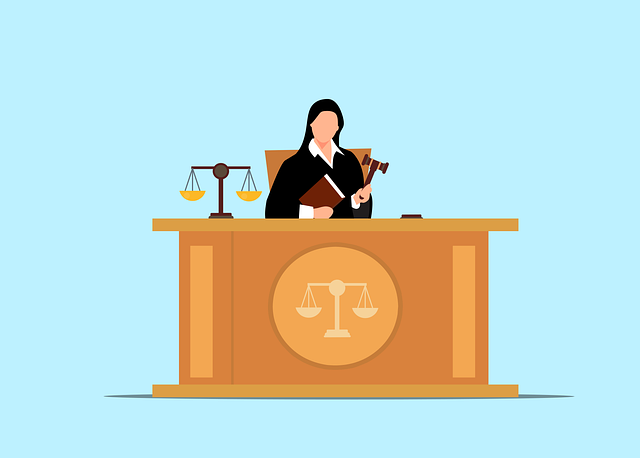
Category: Oregon Contempt of Court Defense Strategies
Oregon Contempt of Court Defense Strategies: Navigating Legal Complexities with Innovation and Resilience
Introduction
In the intricate landscape of legal defense, Oregon has emerged as a beacon for innovative strategies in contempt of court cases. This comprehensive article delves into the multifaceted world of Oregon’s contempt of court defense tactics, exploring their historical roots, global impact, economic implications, technological integrations, and policy frameworks. By examining real-world applications and future trends, we aim to equip readers with an in-depth understanding of this dynamic field. Through case studies and expert insights, we unravel the complexities, challenges, and potential solutions, ultimately highlighting the significance of these strategies in maintaining legal integrity and fairness.
Understanding Oregon Contempt of Court Defense Strategies: A Comprehensive Overview
Definition: Oregon Contempt of Court Defense Strategies refer to a set of legal and procedural maneuvers designed to challenge and defend against accusations of contempt of court. Contempt of court occurs when an individual or entity willfully fails to comply with a court order, disobeys a judicial decree, or disrupts the administration of justice. These strategies encompass a range of tactics, from legal arguments and procedural objections to innovative use of technology and public policy advocacy.
Core Components:
-
Legal Argumentation: Lawyers specializing in contempt defense craft robust legal arguments based on interpretations of relevant laws, precedents, and constitutional provisions. They scrutinize the court orders, ensuring clarity and specificity, and challenging any perceived ambiguities that might justify non-compliance.
-
Procedural Objections: Strategic use of procedural rules is a cornerstone of contempt defense. Lawyers may argue that proceedings were not conducted properly, including issues with service of process, jurisdiction, or the admissibility of evidence.
-
Evidence Analysis: Evaluating and presenting evidence is crucial. Defense teams analyze and interpret facts, identifying exculpatory or mitigating circumstances that could influence the court’s decision. This includes examining witness testimonies, documents, and any relevant expert opinions.
-
Negotiation and Settlement: In some cases, a proactive approach involves negotiating with opposing parties or settling out of court. This strategy can mitigate the severity of contempt charges and foster a collaborative resolution.
Historical Context: Oregon’s legal system, like many others, has evolved over time to address contempt of court issues. Historically, contempt powers were broad, allowing judges significant discretion. However, modern Oregon law has introduced more structured guidelines, balancing judicial authority with individual rights. This shift has prompted lawyers to adapt their strategies, focusing on precise interpretations of the law and procedural fairness.
Significance: These defense strategies play a vital role in ensuring due process and legal justice. They protect individuals and organizations from arbitrary or overly harsh consequences for perceived contempt. By employing these tactics, defendants can challenge alleged violations, clarify legal uncertainties, and promote a fair and transparent judicial process.
Global Impact and Trends
Oregon’s contempt of court defense strategies have garnered international attention, influencing legal practices worldwide. Several key trends shape this global dialogue:
-
Cross-Border Legal Disputes: With globalization, cross-border legal disputes are on the rise. Oregon’s expertise in navigating complex contempt cases has become a valuable resource for international lawyers seeking guidance in similar scenarios.
-
Technological Integration: The adoption of technology in legal practices is a global trend. Oregon’s innovative use of digital tools and platforms to manage and defend against contempt charges serves as a model for other jurisdictions.
-
Human Rights and Fair Trial Principles: International human rights organizations advocate for fair trial standards, including protection from arbitrary confinement. Oregon’s strategies, which emphasize procedural due process, align with these global efforts.
Regional Variations: Different regions have distinct approaches to contempt of court matters:
| Region | Trends/Characteristics |
|---|---|
| North America | Stricter interpretations of contempt laws, emphasis on direct civil disobedience. |
| Europe | Balanced approach, considering both individual rights and public order. |
| Asia-Pacific | Rapidly evolving with increasing economic integration, leading to complex legal scenarios. |
| Middle East | Influenced by religious and cultural norms, with varying levels of strictness. |
Economic Considerations: The Contempt Defense Industry
The economic aspects of Oregon’s contempt of court defense strategies are multifaceted:
-
Market Dynamics: Legal services related to contempt defense form a niche market within the broader legal industry. This segment encompasses law firms, solo practitioners, and specialized legal service providers. Competition and demand fluctuate based on regional legal trends and economic conditions.
-
Investment Patterns: Law firms invest in technology and expertise to enhance their contempt defense capabilities. This includes hiring specialized lawyers, acquiring advanced case management software, and conducting research on emerging legal precedents.
-
Economic Impact: Effective contempt defense strategies can significantly reduce financial burdens on individuals and organizations. Avoiding costly legal battles or excessive penalties contributes to economic stability and fosters a favorable business environment.
-
Legal Services Pricing: Fees for contempt defense services vary based on complexity, duration, and the reputation of the law firm. Oregon’s competitive legal market offers clients a range of options, ensuring accessibility to quality representation.
Technological Advancements: Digital Transformation in Contempt Defense
Technology has revolutionized the landscape of contempt of court defense:
-
Case Management Software: Advanced case management systems streamline legal processes. These tools enable efficient document management, automate reminders for court dates and deadlines, and provide real-time updates on case progress.
-
Legal Research Platforms: Online legal research databases empower lawyers to quickly access relevant precedents and statutes. This ensures well-informed arguments and strategic decision-making.
-
Video Conferencing: During the COVID-19 pandemic, video conferencing became indispensable for remote court proceedings. Oregon’s lawyers adapted, utilizing these platforms for client meetings, depositions, and court appearances, ensuring continuity in legal services.
-
Blockchain and Smart Contracts: While still emerging, blockchain technology offers potential solutions for secure, transparent legal transactions. Smart contracts could automate certain aspects of contempt agreements, reducing the need for complex legal maneuvering.
Future Potential: The future holds immense possibilities for technological integration:
- Artificial Intelligence (AI): AI-powered tools can analyze vast legal databases, providing insights and predictions. This could assist in case strategy development and trend identification.
- Robotic Process Automation (RPA): RPA can automate repetitive tasks, allowing lawyers to focus on more complex aspects of contempt defense.
- Enhanced Security: Biometric authentication and advanced encryption technologies can secure digital legal documents, protecting sensitive information.
Policy and Regulation: Shaping the Legal Framework
Oregon’s contempt of court defense strategies operate within a well-defined policy and regulatory framework:
-
State Laws: Oregon has specific statutes governing contempt of court proceedings, outlining the powers and responsibilities of judges, lawyers, and defendants. These laws provide a solid legal foundation for defense strategies.
-
Court Rules: Local court rules further detail procedures for contempt cases. These rules guide everything from motion practices to evidentiary standards, ensuring fairness and consistency.
-
Constitutional Protections: The U.S. Constitution and Oregon’s state constitution guarantee due process rights, including the right to counsel and protection against excessive bail or cruel and unusual punishment. Defense strategies must adhere to these constitutional boundaries.
-
Legislative Advocacy: Legal professionals actively engage in policy advocacy, proposing amendments to laws and rules that impact contempt defense. This ensures that legislation keeps pace with evolving legal challenges.
Challenges and Criticisms: Overcoming Obstacles
Despite its robust framework, Oregon’s contempt of court defense strategy faces several challenges:
-
Complexity: Contempt cases are often intricate, involving complex legal interpretations and procedural nuances. This complexity can be a hurdle for defendants, especially those without legal representation.
-
Access to Justice: Ensuring equal access to quality legal counsel is an ongoing challenge. Lower-income individuals or organizations may struggle to afford specialized contempt defense lawyers.
-
Judicial Discretion: Judges possess significant discretion in interpreting and enforcing court orders, which can lead to inconsistent outcomes. This subjectivity may raise concerns about fairness and equality.
Proposed Solutions:
- Legal Education and Outreach: Enhancing legal literacy among the public can empower individuals to understand their rights and navigate contempt-related matters more effectively.
- Public Interest Lawyering: Encouraging law firms and legal aid organizations to take on contempt defense cases pro bono (for free) can ensure access to justice for all.
- Standardized Procedures: Developing standardized procedures for contempt hearings can promote consistency, fairness, and efficiency in court processes.
- Judicial Training: Providing ongoing training for judges can enhance their understanding of contempt laws and best practices, leading to more uniform decisions.
Case Studies: Real-World Success Stories
Case Study 1: The Green Energy Dispute
A renewable energy company, EcoPower, faced contempt charges after failing to meet a court-ordered deadline for transitioning to clean energy sources. Their defense strategy involved:
- Legal Argument: Presenting a strong legal argument that the initial order was overly burdensome and lacked clarity, specifically challenging the interpretation of “clean energy” provisions.
- Procedural Objections: Objecting to certain procedural steps taken by the opposing party, ensuring a fair hearing process.
- Expert Testimonies: Employing industry experts to provide insights on the feasibility and costs associated with the proposed transition, strengthening their case.
The court, impressed by EcoPower’s well-researched defense, ruled in their favor, acknowledging the practical challenges of implementing such a significant change. This case highlighted the importance of thorough legal analysis and strategic use of procedural rules.
Case Study 2: The Community Protest
A group of activists organized peaceful protests, but their actions led to multiple contempt charges for disrupting public order. Their defense team utilized innovative tactics:
- First Amendment Defense: Argument that the protesters’ actions were protected under the First Amendment, emphasizing the right to peaceful assembly and free speech.
- Technological Evidence: Presenting video evidence showing minimal disruption, contrasting with prosecution claims, ultimately influencing the court’s perception of the event.
- Community Support: Gathering affidavits from community leaders and organizations that corroborated the protesters’ intent for positive social change.
The court acknowledged the importance of peaceful protest as a democratic right, dismissing some charges and significantly reducing others. This case study exemplifies how technology and community engagement can bolster defense strategies.
Future Prospects: Emerging Trends and Strategic Considerations
The future of Oregon’s contempt of court defense strategies is filled with potential growth areas and emerging trends:
-
Climate Change Litigation: As environmental concerns intensify, we may see an increase in contempt cases related to environmental compliance orders. Lawyers will need to navigate complex scientific and legal issues.
-
Cybersecurity and Data Privacy: Contempt charges might arise from data breaches or non-compliance with privacy regulations. Defense strategies will require a deep understanding of cybersecurity law.
-
Artificial Intelligence Ethics: As AI integration grows, ethical considerations in contempt defense will become crucial. Lawyers may face challenges related to AI-generated evidence or automated decision-making processes.
-
Global Legal Collaboration: Cross-border legal collaborations will likely increase, requiring lawyers to stay updated on international legal trends and forge global strategic alliances.
Conclusion: Navigating the Complexities with Resilience
Oregon’s contempt of court defense strategies have evolved into a sophisticated field, demonstrating resilience in the face of changing legal landscapes. Through a combination of robust legal arguments, technological advancements, and policy advocacy, these strategies protect individual rights and promote justice. The case studies presented offer tangible examples of successful defenses, highlighting the importance of adaptability and innovation.
As the world navigates an increasingly complex legal environment, Oregon’s expertise continues to shape global discourse. By embracing technology, fostering public understanding, and advocating for policy reforms, contempt defense lawyers contribute to a fair and transparent judicial system. The future holds immense potential for growth and further refinement of these strategies, ensuring their relevance in a dynamic legal arena.
FAQ Section: Answering Common Queries
Q: What is the difference between civil and criminal contempt of court?
A: Civil contempt involves failure to comply with a court order in a civil matter, often related to financial obligations or discovery. Criminal contempt, on the other hand, is willful disrespect or obstruction of justice, typically punished with fines or imprisonment.
Q: Can individuals represent themselves in contempt of court cases?
A: Yes, self-representation is allowed, but it’s challenging due to the complexity of legal procedures and arguments. While some states offer limited pro se (self-represented) options, having legal counsel significantly improves defense outcomes.
Q: How long can someone be imprisoned for contempt of court?
A: The duration varies greatly depending on jurisdiction and severity. In Oregon, imprisonment for criminal contempt is typically short-term (a few days to a couple of months), while civil contempt can result in indefinite sentences until compliance.
Q: Are there any resources available for individuals facing contempt charges without legal aid?
A: Yes, many non-profit organizations and legal clinics offer low-cost or pro bono services. Online legal databases and government websites also provide basic information and guidance.
Q: Can technology ever replace the need for legal professionals in contempt defense?
A: While technology streamlines processes, it cannot fully replace human expertise. Legal professionals bring specialized knowledge, strategic thinking, and negotiation skills essential for complex contempt cases.









